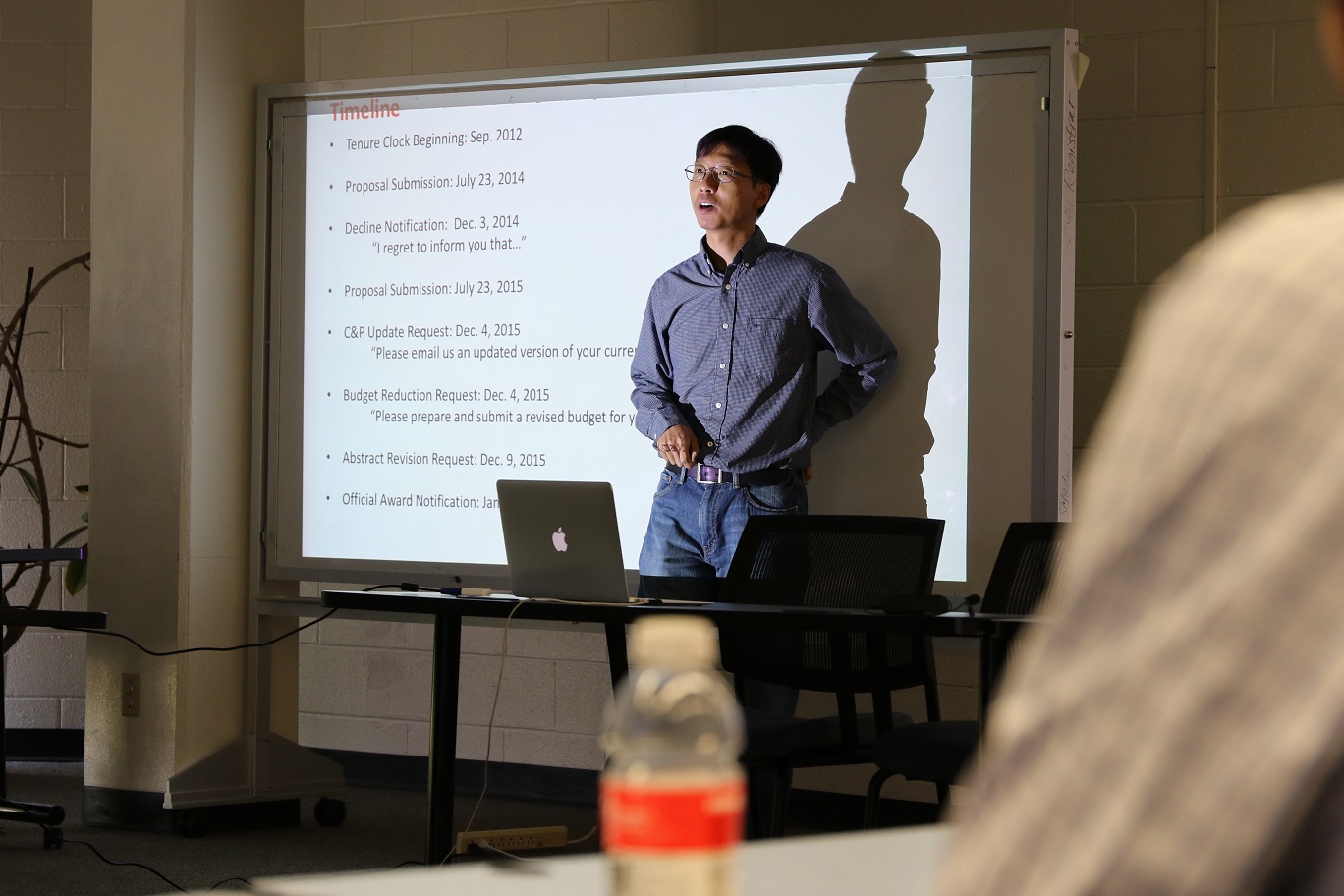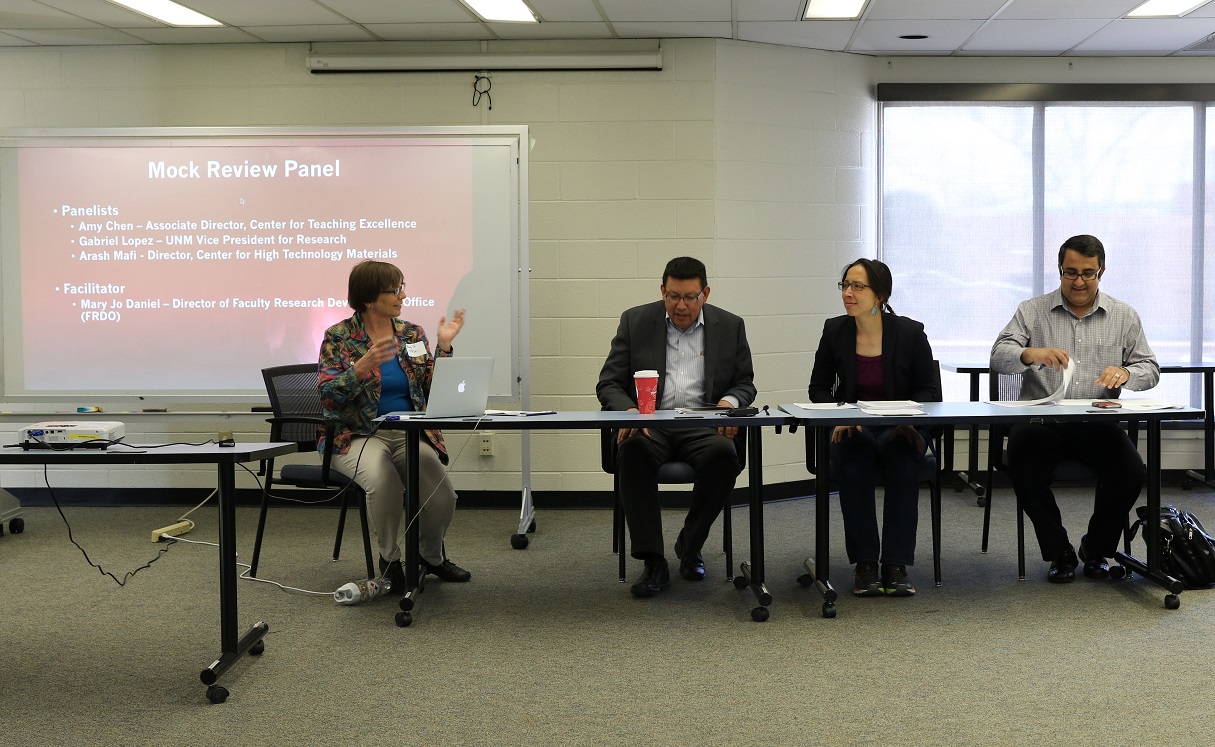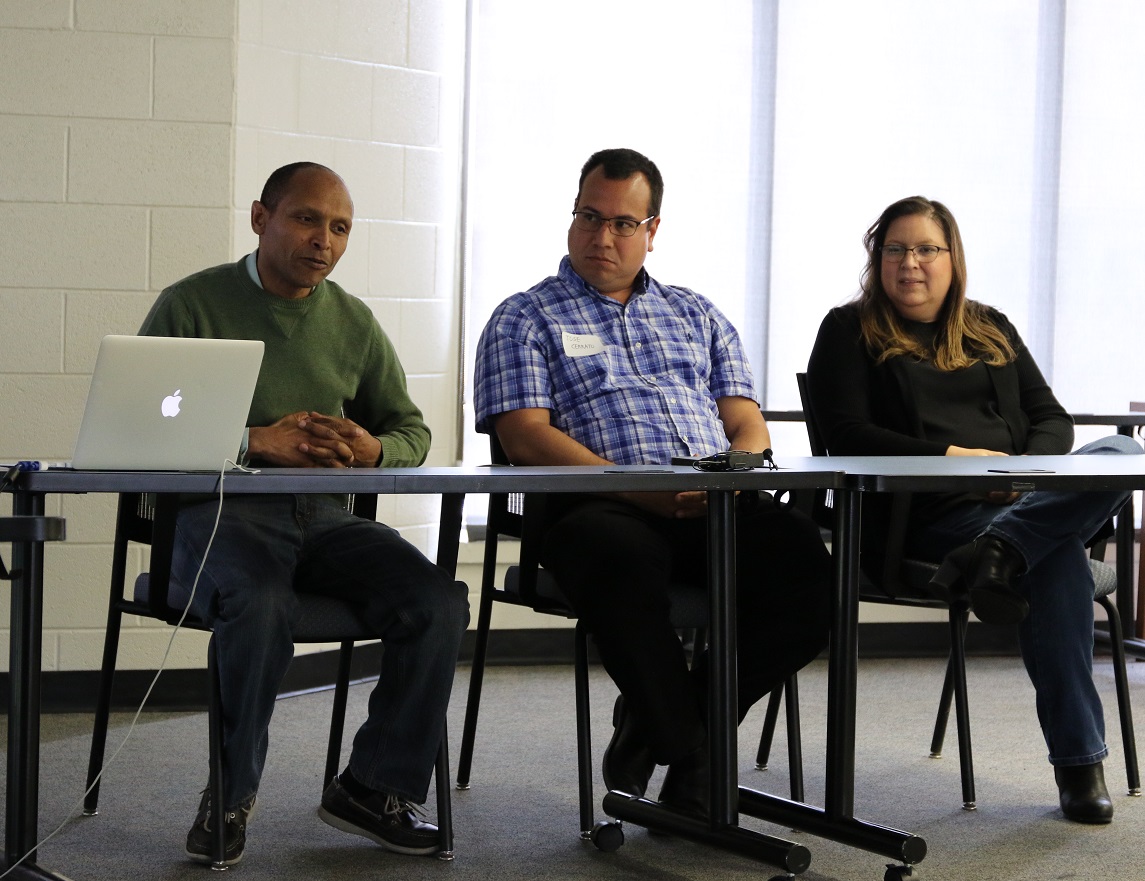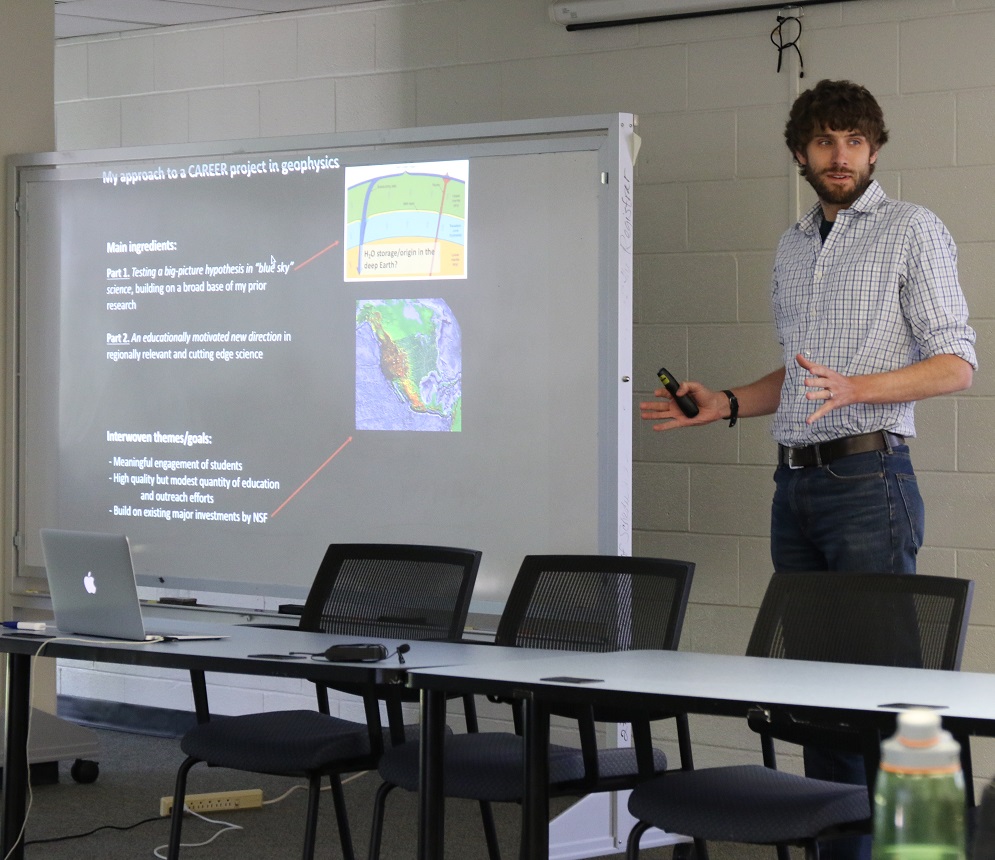

March 21, 2017
The Faculty Research Development Office and ADVANCE at UNM hosted an NSF CAREER Proposal Workshop. Forty-six participants, including early career STEM faculty from 16 departments on campus came together to learn more about the National Science Foundation (NSF)'s Faculty Early Career Development (CAREER) Program from a series of UNM faculty panelists who had themselves recently received the prestigious award. Panelists Sang Eon Han and Brandon Schmandt discussed their experiences with the process of applying for and receiving their CAREER awards, each of them calling particular attention to their broader impacts efforts, the element of luck when it comes to being funded, and the importance of continuing your research throughout the process. Panelists Terefe Habteyes, Lydia Tapia, and Jose Cerrato discussed their experience with applying to the CAREER solicitation more than once. Each of them making note of the changes that they made along the way to finally reach their successful award. A common thread of the panel was to seek out peers, external experts in the field, and non-expert reviewers to read through your proposal in the last few weeks before submitting. A CAREER mock review panel consisting of former CAREER awardees, UNM Vice President for Research, Gabriel Lopez, Interim Director of the Center for High Technology Materials (CHTM), Arash Mafi, and former Presidential Management STEM Fellow at the NSF Division of Earth Sciences and NASA Earth Science Division and now Associate Director of the Center for Teaching & Learning, Amy Chen was facilitated by the Director of the Faculty Research Development Office (FRDO), Mary Jo Daniel. The panelists called attention to the importance of writing a proposal that is suitable for both the expert panelists who scrutinize every detail along with the rushed panelists who skim through proposals while in transit to the panel discussion.
The workshop encouraged substantive discussion among the audience and panelists. The biggest take aways were 1preliminary data is a plus if not essential depending on your NSF organization, 2start preparing your proposal early, 3get others to read through your proposal before submission including expert and non-expert reviewers, 4be creative and innovative, but still realistic when it comes to your broader impacts, 5talk to your department early (~6 months before the submission deadline) to ensure their support of your innovation which will be required through the departmental support letter from the chair. Before leaving the workshop, the audience was encouraged to contact their NSF program officer to discuss their proposed research and education plan to better understand how it could best fit with the goals of sponsor, to find a mentor on or off campus with CAREER experience, to start planning their realistic submission timeline, and to contact their college's faculty research support officer when they were ready to begin the submission process.




